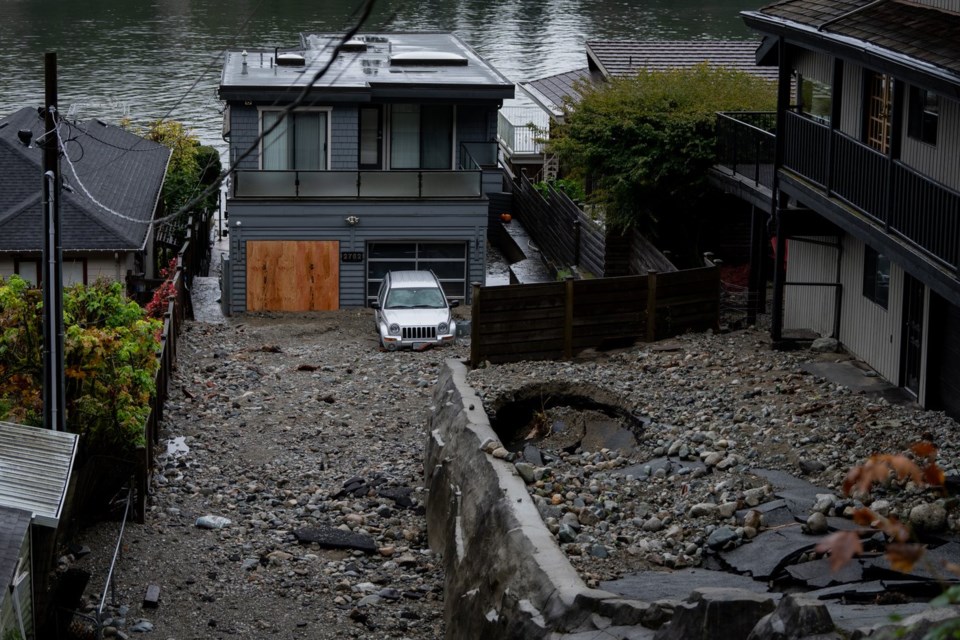Coastal British Columbia will see strong winds overnight with gusts that could reach speeds of between 90 and 110 kilometres per hour.
Warnings from Environment Canada span the Greater Victoria area, the southern Gulf Islands, eastern Vancouver Island, southern parts of Metro Vancouver and Haida Gwaii.
The weather office said most areas will see winds gusting up to 90 kilometres per hour before conditions are expected to ease Saturday morning, while winds over Haida Gwaii could peak at 110 kilometres per hour.
The warnings come a week after an atmospheric river weather system drenched B.C.'s coast, triggering a mudslide and local flooding that killed at least three people.
More rain is expected across the region this weekend, but Ken Dosanjh, a meteorologist with Environment Canada, said it will be "nothing" compared with the last storm, and it will come in a series of "pulses" rather than an atmospheric river.
B.C.'s Ministry of Emergency Management said in a statement on that residents need to takes steps to prepare for "seasonal stormy conditions" despite there being no active flood warnings or advisories in the province Friday.
"There are no anticipated widespread flood hazards at this time, but saturated ground conditions in low-lying areas could lead to reduced drainage and faster run-off," the statement said.
"People are asked to take precautions this season to ensure personal safety, including developing a household plan, putting together emergency kits, connecting with neighbours and learning about the local government emergency response plan for their area."
Meanwhile, the search for a man missing in Metro Vancouver after last weekend's torrential rain ended in tragedy with Coquitlam RCMP confirming late Friday that a body was located during the search.
Coquitlam RCMP said in a release that the body found was that of 59-year-old Robert Belding, who was reported missing on Oct. 20 after a witness reported seeing him fall into the swollen Coquitlam River on Sunday while he tried to rescue a dog.
Ian MacDonald with Coquitlam Search and Rescue had said earlier in the day that the team was stepping up its search to find Belding, who was missing for several days.
The District of North Vancouver is still mopping up from the 350 millimetres of rain it received last weekend, but it has lifted an evacuation order for six properties in the Deep Cove neighbourhood, issuing a statement saying crews completed work to remediate hazards created by the "extreme rainfall."
A statement from the district said hazards may still be present at the properties, and homeowners are encouraged to "undertake their own due diligence."
The district had issued the order last Sunday after assessments found that potential failure of private infrastructure could pose a risk to public safety.
The rain last weekend prompted a mudslide in Coquitlam that swept away a home, killing the woman inside, and two others died on the west coast of Vancouver Island when a road washed out and swept their vehicles into an overflowing river.
This report by The Canadian Press was first published Oct. 25, 2024.
Brenna Owen and Nono Shen, The Canadian Press



